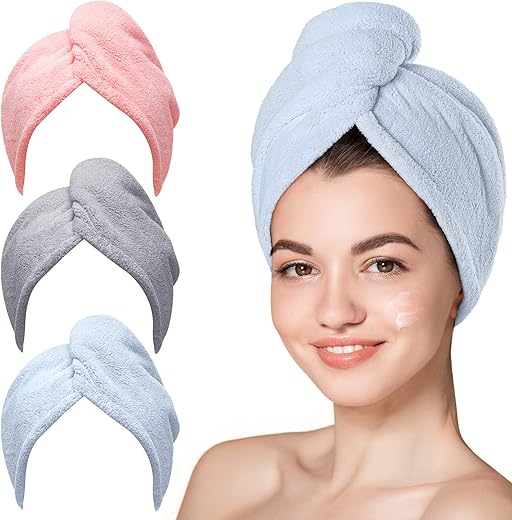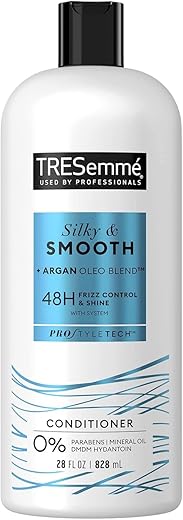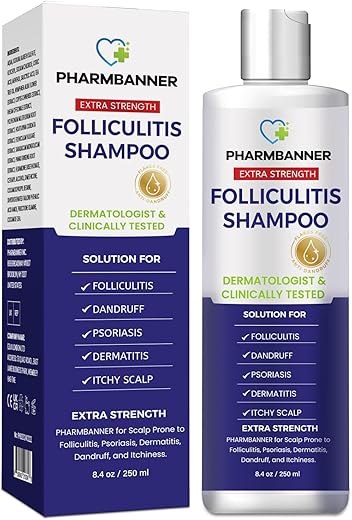
Hair Oil vs. Serum
Are you tired of dealing with frizzy hair that just won’t cooperate? We’ve all been there. It can be frustrating trying to find the right hair care product that will give you the smooth and sleek look you desire. That’s why we’re here to help. In this blog post, we’ll be delving into the world of hair oil and serum, two popular options for taming frizz. By the end of this post, you’ll have all the information you need to make the best choice for your hair. So, let’s get started and say goodbye to frizzy hair once and for all.
Top-rated hair oils to tame frizz and restore smoothness

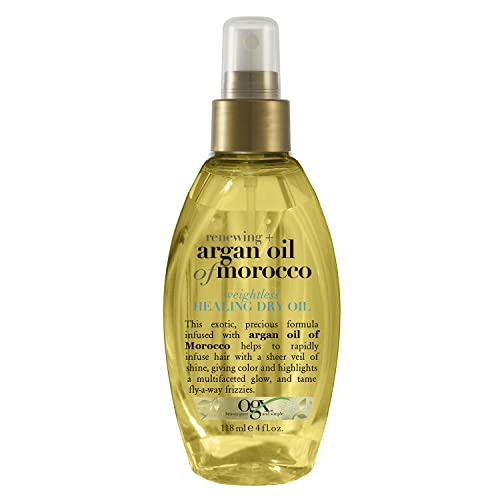

What is hair oil?
Hair oil is a versatile product that has been used for centuries to promote healthy hair. It is typically made from a combination of natural oils, such as coconut oil, argan oil, jojoba oil, or olive oil. These oils are packed with essential nutrients and vitamins that nourish the hair and scalp, leaving them healthy and shiny.



How Does Hair Oil Work?
When applied to the hair and scalp, hair oil penetrates deeply, providing essential moisture and nutrients. It helps to strengthen the hair follicles, stimulating hair growth and preventing breakage. Hair oil also forms a protective layer around each strand, reducing frizz, and protecting it from environmental damage.
Benefits of Using Hair Oil
Nourishes the Hair
One of the key benefits of using hair oil is its ability to nourish and moisturize the hair. The natural oils present in hair oil provide deep conditioning, making the hair softer, smoother, and more manageable. Regular use of hair oil can also help to repair damaged hair by providing the necessary nutrients to restore its health.
Adds Shine
Hair oil is known for its ability to add shine to dull and lifeless hair. The natural oils present in hair oil coat the hair shaft, reflecting light and giving it a glossy appearance. This instant boost of shine can make your hair look healthier and more vibrant.
Reduces Frizz
Frizzy hair can be a major problem for many people, especially in humid weather. Hair oil helps to tame frizz by sealing the hair cuticles and preventing moisture from entering. This creates a smooth surface, reducing frizz and leaving the hair looking sleek and polished.
Types of Hair Oil
There are various types of hair oil available in the market, each with its own unique properties and benefits. Here are some popular types of hair oil and their suitability for different hair types:
- Coconut Oil: Ideal for all hair types, coconut oil is a lightweight oil that penetrates the hair shaft easily. It nourishes and moisturizes the hair, while also promoting hair growth.
- Argan Oil: This oil is rich in antioxidants and vitamin E, making it suitable for dry and damaged hair. Argan oil helps to repair and restore the hair, leaving it soft, smooth, and shiny.
- Jojoba Oil: Similar to the natural oils produced by our scalp, jojoba oil is great for balancing oil production. It is suitable for all hair types, especially those with oily scalps or dandruff.
- Olive Oil: Olive oil is a popular choice for those with dry and frizzy hair. It deeply moisturizes the hair, adding shine and reducing frizz.
It is important to choose a hair oil that suits your hair type and concerns. Experimenting with different oils can help you find the perfect one for your hair.
In conclusion, hair oil is a must-have product for anyone looking to improve the health and appearance of their hair. With its nourishing properties, ability to add shine, and reduce frizz, hair oil is a versatile product that can transform your hair. So, why not give it a try and experience the benefits for yourself?
What is hair serum?
Hair serum is a popular hair care product that is designed to provide nourishment, protection, and styling benefits to your hair. It is a lightweight, silicone-based product that is usually applied to the hair after washing and conditioning. Hair serums come in various forms, including sprays, oils, and creams, and are suitable for all hair types.


The Purpose of Hair Serum
Hair serum serves multiple purposes and offers a range of benefits for your hair. Here are some key advantages of using hair serum:
1. Smoothes Frizzy Hair
Many of us struggle with frizzy hair, especially in humid weather. Hair serums are formulated to combat frizz and create a smooth, sleek appearance. The silicone-based formula helps to seal the hair cuticles, preventing moisture from entering and causing frizz. By applying hair serum, you can enjoy frizz-free, manageable hair throughout the day.
2. Protects Against Heat Damage
Excessive heat styling can damage hair, leading to dryness, breakage, and split ends. Hair serums act as a protective barrier, shielding your hair from the damaging effects of heat styling tools like flat irons and curling wands. The silicones in the serum form a protective layer around the hair shaft, reducing the impact of high temperatures and preventing moisture loss.
3. Adds a Glossy Finish
If you desire shiny, lustrous hair, hair serum can be your secret weapon. The silicone content in serums adds a glossy finish to your hair, enhancing its natural shine. This creates a radiant and healthy appearance, making your hair look more vibrant and well-groomed.
Types of Hair Serums and Their Uses
Hair serums are available in different types, each with its own unique benefits. Let’s explore the various types and their specific uses:
1. Smoothing Serums
These serums are specifically designed to tackle frizz and make your hair more manageable. They work by coating the hair strands with a protective layer, smoothing out any roughness and reducing flyaways. Smoothing serums are ideal for those with thick, coarse, or unruly hair.
2. Heat Protectant Serums
As the name suggests, heat protectant serums are formulated to shield your hair from the damaging effects of heat styling tools. They create a barrier between your hair and the high temperatures, minimizing the risk of heat-induced damage. Heat protectant serums are essential if you frequently use heat styling tools or expose your hair to high heat.
3. Shine Enhancing Serums
For those seeking a glossy finish, shine enhancing serums are the way to go. These serums contain light-reflecting particles that give your hair a radiant shine. They are perfect for adding a healthy glow to dull, lifeless hair, making it look vibrant and more luxurious.
4. Repairing Serums
If you have damaged hair, repairing serums can help revive and restore its health. These serums are enriched with nourishing ingredients that penetrate deep into the hair shaft, repairing and strengthening it from within. Repairing serums are particularly beneficial for chemically treated or heat-damaged hair.
Choosing the Right Hair Serum
When selecting a hair serum, consider your hair type, concerns, and desired results. Here are a few factors to keep in mind:
- Hair type: Different serums work best for different hair types, so choose one specifically formulated for your hair type (e.g., oily, dry, curly, etc.).
- Ingredients: Look for serums that contain beneficial ingredients like argan oil, coconut oil, or keratin for added nourishment.
- SPF protection: If you spend a lot of time outdoors, consider a hair serum with added SPF protection to shield your hair from harmful UV rays.
- Personal preference: Consider the texture (spray, oil, or cream) and fragrance of the serum, as these factors can greatly impact your overall experience.
In conclusion, hair serum is a versatile product that offers numerous benefits for your hair. Whether you want to tame frizz, protect against heat damage, or add a glossy finish, there is a hair serum out there for you. By incorporating this hair care staple into your routine, you can achieve healthier, more manageable, and beautiful hair.
Comparison between hair oil and serum
Hair oils and serums are popular haircare products known for their ability to nourish and enhance the health of our hair. While they may appear similar at first glance, there are significant differences between the two when it comes to their consistency, application, and effects on the hair. In this blog post, we will explore these differences and help you determine which product is best suited for your hair type and needs.
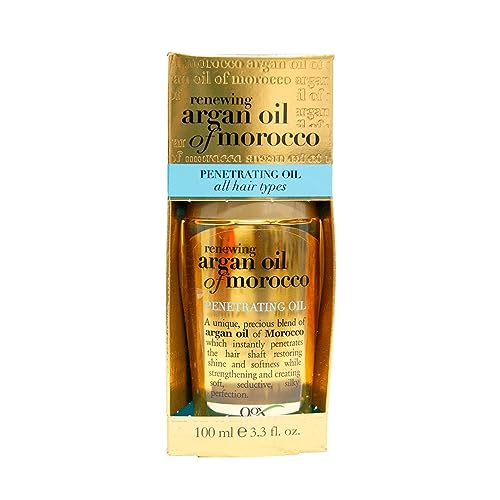

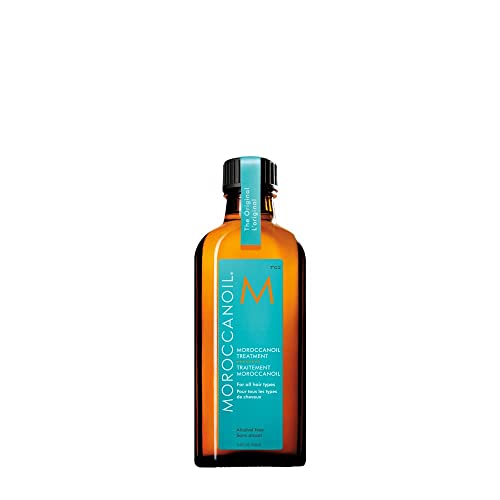
Consistency
Hair Oil
- Hair oils are typically thicker in consistency.
- They are often formulated with natural oils such as coconut, argan, or jojoba oil.
- The high viscosity of hair oils provides a protective coating on the hair strands.
Serum
- Serums, on the other hand, are lighter and have a more fluid consistency.
- They are usually silicone-based, which gives them a lightweight texture.
- The thin consistency of serums allows for easier absorption into the hair.
Application
Hair Oil
- Hair oils are best applied to damp or dry hair.
- They are usually massaged into the scalp and then distributed through the lengths of the hair.
- The thick texture of hair oils can make it challenging to evenly distribute the product.
Serum
- Serums, due to their lightweight consistency, can be applied to both wet and dry hair.
- They are typically applied by dispensing a few drops onto the palm and then evenly distributing it through the hair.
- The fluid texture of serums allows for easier application and distribution.
Effects on the Hair
Hair Oil
- Hair oils provide deep hydration and nourishment to the hair.
- They can help to reduce frizz, add shine, and improve the overall health of the hair.
- Hair oils are particularly beneficial for dry, damaged, or coarse hair types.
Serum
- Serums are designed to provide instant shine and smoothness to the hair.
- They help to tame frizz, reduce flyaways, and create a sleek appearance.
- Serums are suitable for all hair types, including fine and oily hair, as they do not weigh down the hair.
Advantages and Disadvantages
Hair Oil
Advantages:
- Provides deep hydration and nourishment.
- Helps to repair and strengthen damaged hair.
- Offers long-lasting effects.
- Can be used as a pre-shampoo treatment or overnight treatment.
Disadvantages:
- May feel heavy or greasy on the hair.
- May take longer to absorb, especially if applied in excess.
Serum
Advantages:
- Provides instant shine and smoothness to the hair.
- Lightweight formula does not weigh down the hair.
- Absorbs quickly and leaves no residue.
- Can be used as a finishing touch for styling.
Disadvantages:
- Offers temporary effects and may require frequent application.
- Some serums may contain silicone, which can cause build-up over time.
Factors to consider when choosing between hair oil and serum
When it comes to hair care, choosing the right products can make a significant difference in achieving the desired results. Hair oil and serum are two popular options that offer various benefits for different hair types and concerns. To help you make an informed decision, we have compiled a list of factors to consider when choosing between hair oil and serum. By understanding these factors, you can select the product that best suits your needs.



Hair Type
One of the most important factors to consider is your hair type. Different hair types have varying needs, and using the wrong product can lead to unsatisfactory results. Here’s how hair oil and serum can benefit different hair types:
Hair Oil
- Thick, coarse, or frizzy hair: Hair oils are often more moisturizing and can help tame frizz, add shine, and improve manageability.
- Dry or damaged hair: Hair oils with nourishing ingredients can provide deep hydration and repair damaged strands.
- Curly or wavy hair: Hair oils can enhance natural curls and waves, reducing frizz and creating definition.
Serum
- Fine or thin hair: Serums are typically lighter in texture and won’t weigh down fine or thin hair. They can add shine, control flyaways, and provide heat protection during styling.
- Oily hair: Serums are often formulated to be lightweight and non-greasy, making them suitable for those with oily scalps.
Desired Results
Consider the specific results you want to achieve with your hair care routine. Hair oil and serum offer different benefits, so understanding your desired outcome can help you choose the right product:
Hair Oil
- Hydration: Hair oils are excellent for moisturizing dry and damaged hair, restoring its vitality and shine.
- Nourishment: Some hair oils are enriched with nutrients and vitamins that can strengthen and promote healthy hair growth.
- Scalp health: Certain hair oils have antibacterial and anti-inflammatory properties, which can help maintain a healthy scalp.
Serum
- Smoothing: Serums are great for taming frizz and flyaways, providing a smooth and polished appearance.
- Heat protection: Many serums offer heat protection, safeguarding hair from damage caused by styling tools like straighteners or curling irons.
- Shine enhancement: Serums can give hair a glossy and lustrous finish, enhancing its overall appearance.
Styling Routine
Consider your styling routine and how the product will fit into it. Hair oil and serum have different consistencies and application methods, which can affect how they integrate with your styling routine:
Hair Oil
- Application: Hair oil is typically applied to damp or dry hair, and a few drops are usually sufficient.
- Absorption time: Hair oils may require more time to be fully absorbed into the hair, so they might not be ideal for those who prefer quick styling routines.
Serum
- Consistency: Serums have a lightweight, gel-like consistency that is quick to absorb into the hair.
- Application: Serums are usually applied to towel-dried hair before styling or as a finishing touch to add shine.
Personal Preferences
Lastly, consider your personal preferences, including the scent, texture, and overall feel of the product. It’s important to choose a product that you enjoy using, as it will encourage consistency in your hair care routine.
To summarize the factors to consider when choosing between hair oil and serum, we have created a comparison table:
| Factor | Hair Oil | Serum |
|---|---|---|
| Hair Type | Thick, coarse, frizzy | Fine, thin, oily |
| Desired Results | Hydration, nourishment | Smoothing, heat protection |
| Styling Routine | Application, absorption | Consistency, application |
| Personal Preferences | Scent, texture, feel | Scent, texture, feel |
Remember, what works for one person may not work for another, so it’s essential to consider your unique hair type, desired results, styling routine, and personal preferences when choosing between hair oil and serum. With this knowledge, you can make an informed decision and enjoy the benefits of healthier, more beautiful hair.
Choosing the Best Hair Care Solution
In summary, the comparison between hair oil and serum reveals that they both have their own advantages and can be effective in managing frizz and improving hair health. Ultimately, the decision of which to use depends on personal preferences, hair type, and desired outcomes. It is important to take into account factors like hair texture, styling routine, and individual preferences when making a choice. Seeking advice from a hair care professional can also be helpful in selecting the most suitable option for individual needs.

Hello! I’m Ava Wilson, a passionate advocate for healthy, beautiful hair. With years of experience in the hairstyling industry and a deep-rooted love for all things hair, I’ve made it my mission to share valuable insights and expert tips on nurturing and styling locks.


